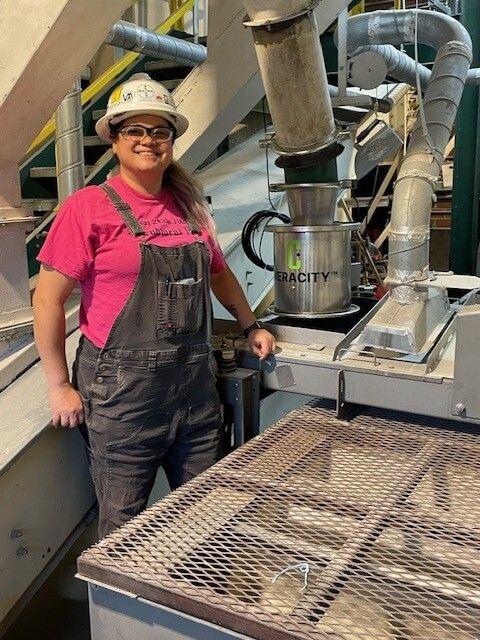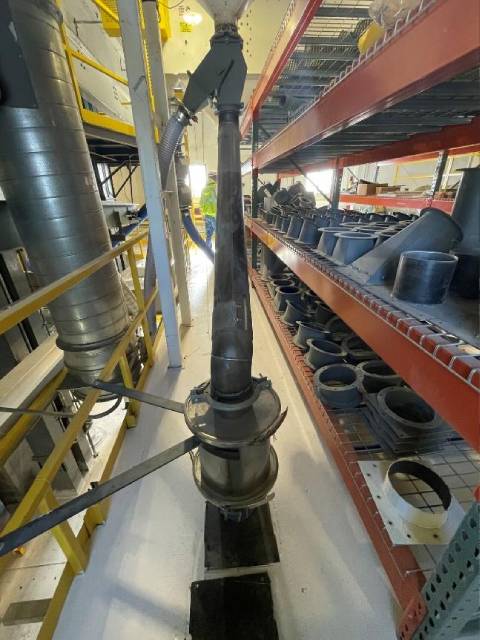CADARO Newsletter | Volume 2 – January 2025
Welcome to our second newsletter! In this edition, we’re excited to explore how automation is reshaping the labor market and transforming industries. We provide valuable insights into the complex relationship between automation and labor. As we continue to navigate this evolving landscape, one thing is certain: adaptability and innovation is essential in shaping a sustainable and thriving future.
We also explore how Bayer®, a leader in agricultural science and technology, has embraced innovation. By integrating advanced flow sensors that deliver real-time measurements of flow rate and weight, Bayer has demonstrated its commitment to innovation and sustainability.
Join us as we delve into the applications of automation and share insights on how it continues to impact labor and industries.
Company Updates & News
UPCOMING EVENT: GEAPS EXCHANGE 2025
February 22-25, 2025
Kansas City Convention Center
Kansas City, Missouri, USA
Join us at GEAPS Exchange as we showcase our innovative solutions!
Stop by our booth #2801 and attend our Innovation Station session presentation to see how CADARO’s flow sensors can help enhance and future-proof your operations.
📍Innovation Station at GEAPS Exchange 2025
📆Monday, February 24, 2025
🕥10:30 AM
Customer Spotlight
BAYER® LEADS THE WAY IN MATERIAL HANDLING EFFICIENCY
Bayer, a leader in agricultural science and technology, has been at the forefront of adopting innovative solutions to enhance efficiency in material handling and processing. At its facilities in Redwood Falls, MN; Clarion, IA; and Marshall, MO, Bayer Crop Science, a division of Bayer AG, has leveraged CADARO’s advanced flow sensors to monitor flow rates and optimize processes like truck loading. By integrating these cutting-edge technologies, Bayer Crop Science has set new standards for precision, efficiency, and automation in seed processing and bulk material handling.
The Bayer Crop Science facility in Redwood Falls, MN, has been using CADARO’s VERACITY® VR4K sensor for inline soybean flow rate since 2016. Recently, they updated the controls and software to the latest standards, maximizing precision and functionality. The VR4K’s real-time, accurate measurements have enabled optimized seed processing operations.
In Clarion, IA, the Bayer Crop Science facility recently updated the existing VERACITY VR2K sensor used for monitoring process flow rates with the latest CADARO Enterprise software and controls. Additionally, they installed a VERACITY VR5K flow sensor for their truck-loading application. This Bayer facility remains committed to optimizing processing and loading efficiency by obtaining real-time accurate flow rate and weight measurements.
In Marshall, MO, the Bayer Crop Science facility installed a new VERACITY VR2K sensor for truck-loading applications. Lexie Howe, Bayer’s on-site automation technician, oversaw the installation and successful commissioning to ensure the system operates efficiently and integrates seamlessly. Lexie’s dedication to accuracy and efficiency guarantees optimal truck-loading performance. Her commitment underscores the importance of expert support and collaboration in achieving operational excellence.


CADARO’s flow sensors deliver real-time measurements of flow rate and weight with typical accuracy of +/- 1%. Their seamless compatibility with both vertical and non-vertical installations makes them ideal for diverse applications, including Bayer Crop Science’s inline processing and truck loading. Whether measuring soybeans or other materials, these sensors enhance efficiency and drive profitability.
By integrating flow sensors that deliver real-time measurements of flow rate and weight, Bayer Crop Science has significantly enhanced its material handling processes. These automated systems provide greater control and efficiency, reducing human error and ensuring consistency. This level of automation supports Bayer’s commitment to innovation and sustainability.
The collaboration between Bayer Crop Science and CADARO exemplifies how advanced technology can transform operations. From truck-loading applications in Clarion, IA, and Marshall, MO, to inline soybean measurement in Redwood Falls, MN, Bayer Crop Science is revolutionizing material handling processes. These innovations not only improve precision and efficiency but also drive profitability and sustainability, reinforcing Bayer’s position as a leader in agricultural technology.
Industry Insights
ADDRESSING LABOR CHALLENGES IN RURAL AMERICA: THE ROLE OF TECHNOLOGY
In rural America, finding, hiring, and retaining labor presents unique challenges. The scarcity of skilled workers and an aging population make it increasingly difficult for businesses to maintain a stable workforce. This issue is further compounded by the evolving job roles that require new skills and adaptability.
One of the primary challenges in rural areas is the limited pool of skilled labor. Many young people migrate to urban centers for better opportunities, leaving behind an aging workforce. This demographic shift results in a shortage of both skilled and unskilled labor, making it hard for businesses to find and retain employees. Additionally, the skill of managing flow rates, once a critical aspect of many industries, is being lost as the level of intuition required for such tasks diminishes.
Technology can be a powerful tool in addressing these labor challenges. Automation can bridge the gap by taking over repetitive and manual tasks, allowing workers to focus on more meaningful activities. Instead of performing tasks, workers may find themselves monitoring and managing automated systems, which can lead to increased efficiency and productivity.
Flow sensors can replace or augment labor in industries where precise control of flow rates is essential. These sensors improve work quality and reduce dependency on human intuition. Automation empowers workers with technology, allowing them to take on more meaningful roles that require critical thinking and problem-solving skills.
As automation continues to evolve, it is crucial to futureproof the workforce. This involves preparing workers for the changes brought about by technology and ensuring they have the skills needed to thrive in an automated world. Governments, industries, and educational institutions play a pivotal role in this process by offering vocational training programs, coding boot camps, and STEM education.
The transformation of the workforce due to aging demographics and evolving job roles necessitates a proactive approach to reskilling and upskilling. By equipping workers with the necessary skills, we can ensure that they remain relevant and capable of contributing to the economy in meaningful ways.
The labor challenges in rural America are significant, but technology offers viable solutions. By leveraging automation and other technological advancements, we can address the issues of skilled and unskilled labor shortages, improve the quality of work, and empower workers to take on more strategic roles. Futureproofing the workforce through continuous education and training is key to navigating the changes and ensuring a prosperous future.
Contact Us
If you are interested in learning more about how CADARO flow sensors can benefit your operations, please reach out to discuss your needs and how we can assist.
WE MEASURE. YOU MANAGE.
